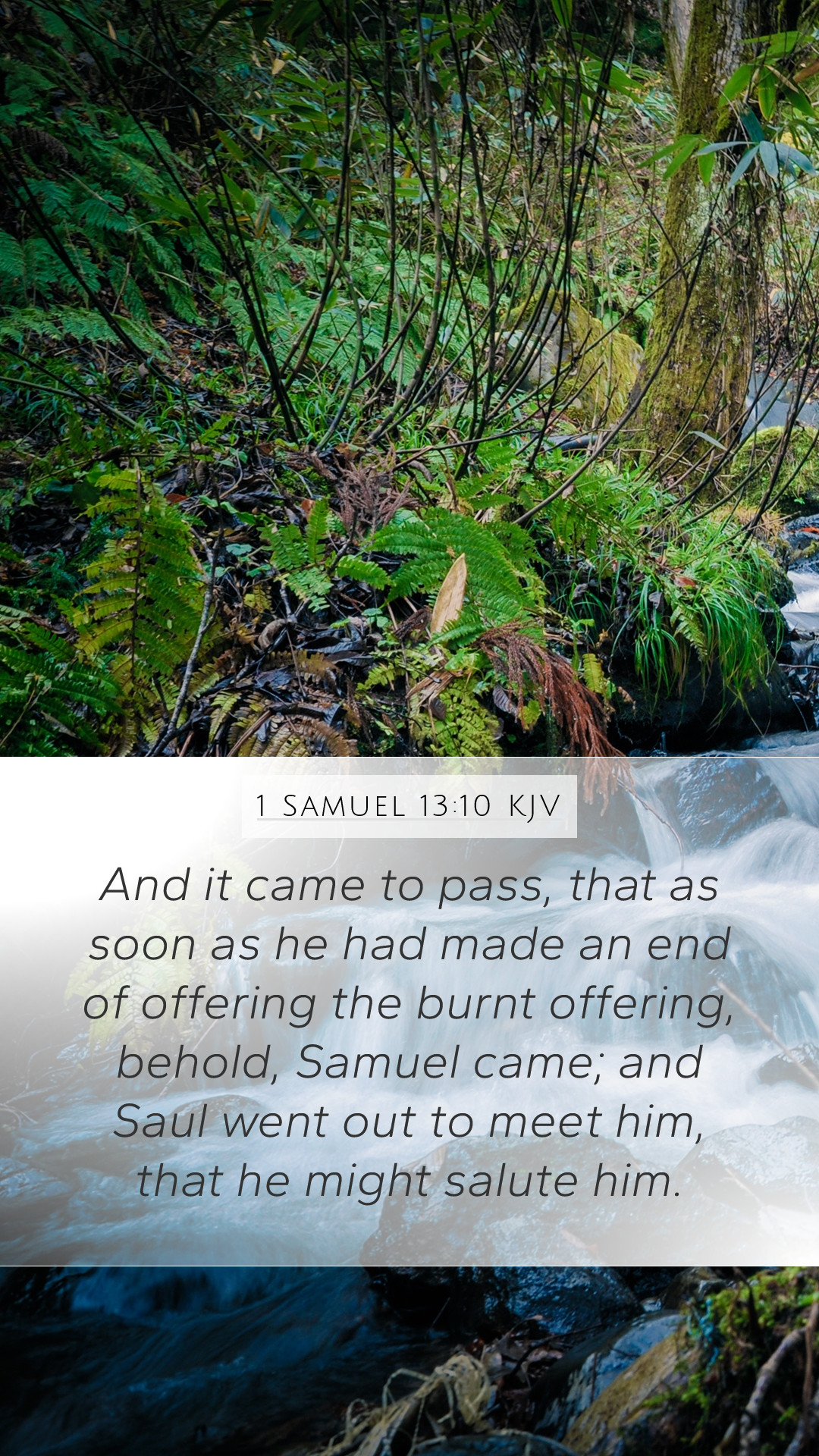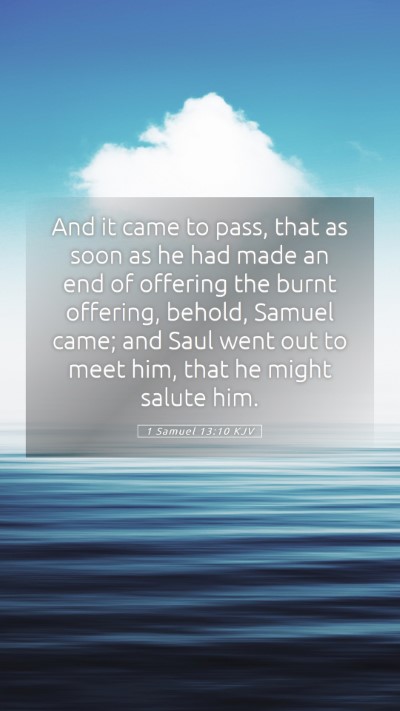Bible Verse: 1 Samuel 13:10
“And it came to pass, that as soon as he had made an end of offering the burnt offering, behold, Samuel came; and Saul went out to meet him, that he might salute him.”
Overview
This verse is a pivotal moment in the narrative of Saul's reign as the first king of Israel. It highlights the tension between Saul's actions and the expectations of the prophet Samuel, representing God's authority. This analysis draws from public domain commentaries to provide insights into this scripture.
Significance of the Verse
- Timing and Obedience: The passage illustrates the importance of timing in obeying God's commands. Saul’s decision to perform the burnt offering without waiting for Samuel reflects his impatience and lack of trust.
- Prophetic Authority: Samuel's arrival signifies the authority of the prophet and God's mediator. The imminent meeting between Saul and Samuel underscores the accountability Saul has to divine instructions.
- Symbolism of Sacrifice: The burnt offering represents worship and atonement, which was meant to be conducted according to God's guidelines established through the Prophet Samuel.
Bible Verse Interpretations
- Commentary by Matthew Henry:
Matthew Henry emphasizes the folly of Saul in taking upon himself the role of a priest, which was forbidden. By offering sacrifices without proper authority, Saul set a precedent for disobedience that would lead to God's rejection of him as king.
- Commentary by Adam Clarke:
Adam Clarke notes that Saul’s actions stemmed from his fear of the surrounding enemies and a desire to secure divine favor. His failure to wait for Samuel exemplifies a lack of faith under pressure. Clarke warns that such rash decisions can lead to disastrous spiritual consequences.
- Commentary by Albert Barnes:
Albert Barnes points out the gravity of Saul's error in not adhering to Samuel’s instructions. The narrative stresses that the duty of seeking God's guidance in all matters, especially in leadership, is paramount to success and divine approval.
Understanding and Application
The lesson from 1 Samuel 13:10 encourages believers to trust God’s timing and authority. Acts of worship and decisions in Christian life should not be made impulsively but should be rooted in obedience to God’s Word.
Practical Applications:
- Trusting God: Believers are called to trust God's timing in all aspects of life, emphasizing prayer and waiting for guidance rather than acting out of fear.
- Respect for Leadership: The scripture emphasizes the importance of respecting spiritual authority and recognizing God's chosen leaders.
- Obedience in Worship: Worship practices should align with scriptural teachings to sincerely honor God and maintain a right relationship with Him.
Cross References
- 1 Samuel 15:22-23: God values obedience over sacrifice.
- Exodus 30:30-33: The specific role of the priest in offering sacrifices.
- 1 Chronicles 10:13-14: Saul's disobedience leads to his downfall.
Conclusion
In summary, 1 Samuel 13:10 encapsulates the themes of obedience, leadership accountability, and the significance of patience in the face of adversity. Understanding this verse in the context of Biblical exegesis provides valuable insights for anyone engaging in Bible study or seeking the meaning of Bible verses.


